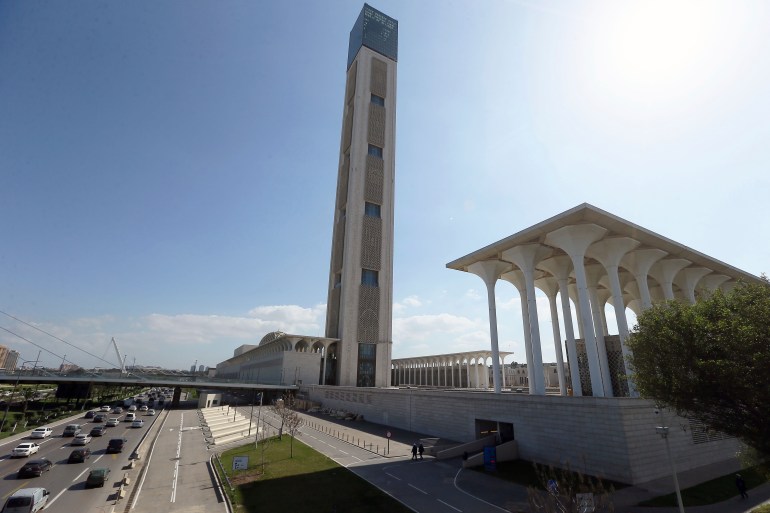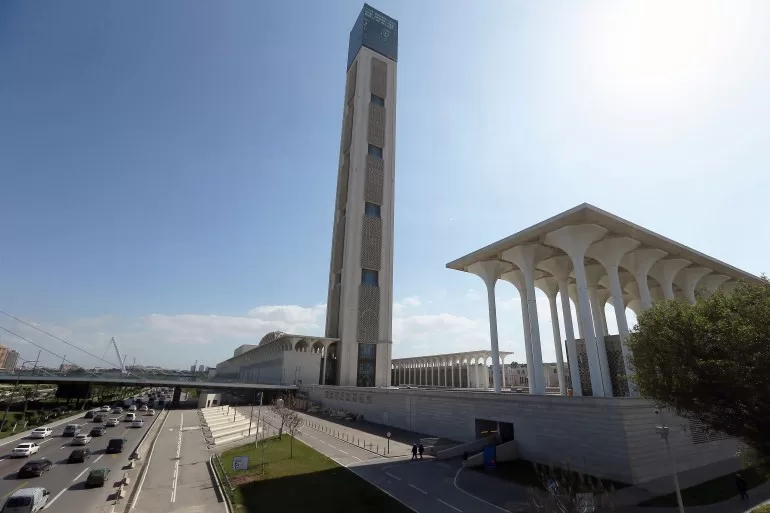It’s also Africa’s largest, but critics view the mosque as a vanity project for a former president who named it after himself.
Algerian President Abdelmadjid Tebboune on Monday officially inaugurated the Grand Mosque of Algiers on the North African nation’s Mediterranean coastline.
Known locally as the Djamaa El-Djazair, it features the world’s tallest minaret at 265 metres (869 feet), can accommodate 120,000 people, and is the world’s largest mosque only after Islam’s holiest sites in Saudi Arabia’s Mecca and Medina.
It was built over seven years in the form of a modernist structure extending across 27.75 hectares (almost 70 acres), decorated in wood and marble and containing Arab and North African flourishes. It reportedly has a helicopter landing pad and a library capable of housing up to one million books.
The mosque’s official opening allows it to host many public prayers and events during the month of Ramadan, which starts around March 10.
But its inauguration event was largely ceremonial, as it has been open to international tourists and state visitors to Algeria for about five years, and first opened for prayers in October 2020 but without Tebboune as he was suffering from COVID-19.
The vast mosque reportedly cost close to $900m to build and was constructed by a Chinese firm.

Algeria now boasts the largest mosque outside of the holiest sites in Islam, but the project has been marked by years of delays and cost overruns. It has also been criticised for allegedly being built in a seismically risky area, but the government has denied this.
Critics also claim that the mosque was essentially a vanity project for former President Abdelaziz Bouteflika, who was forced to resign in 2019 after 20 years in power.
Bouteflika, who had to step down after popular protests and eventual intervention by Algeria’s military, had named the mosque after himself and planned to inaugurate it in February 2019 but never managed to.
The mosque — along with a major national highway and a million new housing units — was marred by suspicions of corruption during the Bouteflika era, with suspected kickbacks to state officials paid by the contractors.
